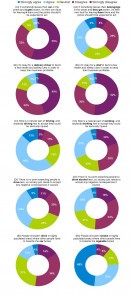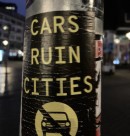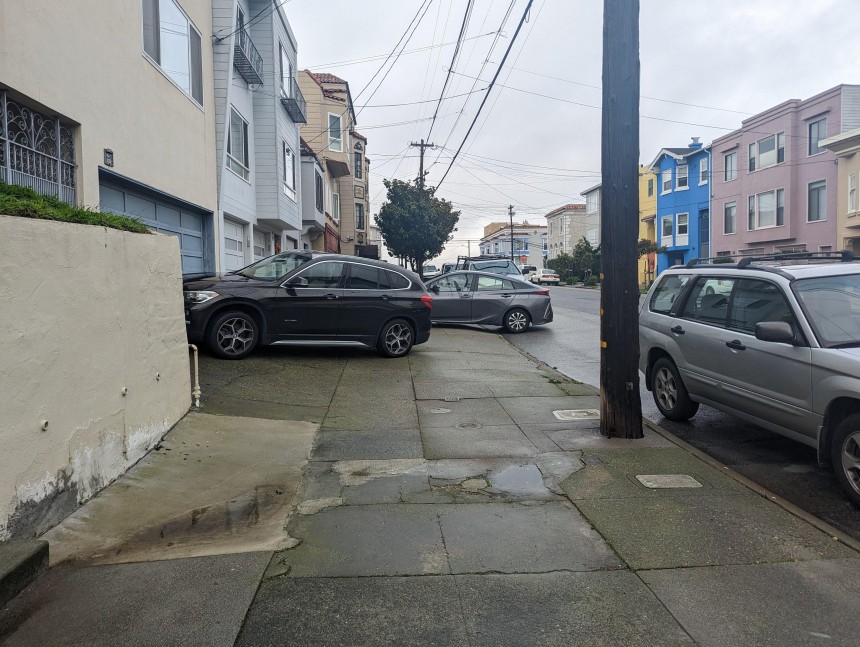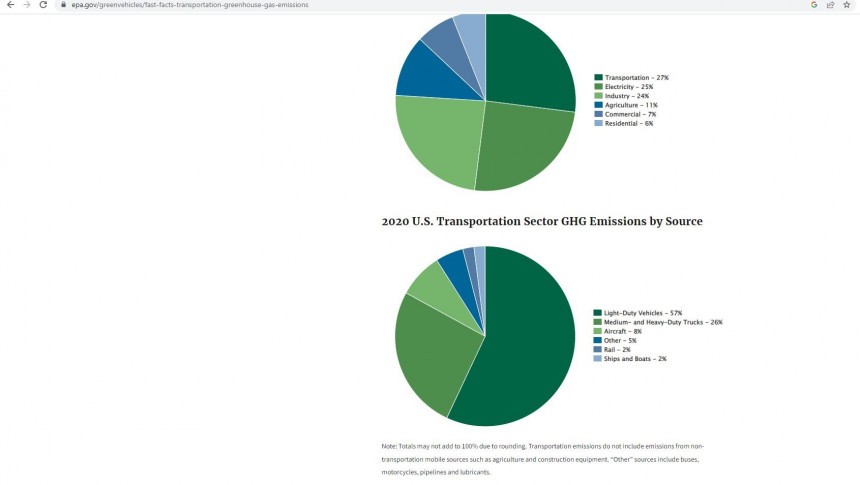Ever heard of the term 'car brain?' It is used mostly online by anti-car advocates to single out gearheads, enthusiasts, and everyday drivers. But now there’s a study that confirms what random people have been saying for quite a while on various internet platforms – the 'car brain' phenomenon is real.
Today, 'car brain' is used to describe someone that highly prioritizes vehicles and driving over other important things like walkable communities, efficient public transport, public health, protecting the environment, and making good use of real estate. While the specific term was recently coined, the people that don't like cars exist maybe since the automobile was invented.
But a couple of years ago the movement against cars started to rapidly grow and its core message began reaching more and more people. Most of those who adhered to this trend demanded one thing – (try to) give up on your car. But now, things are evolving and spreading into other key domains.
On one hand, we have online public forums that debate this issue all the time. People share their experiences, discuss their views, criticize others, and talk about various other topics. For example, one such forum is found on the popular platform Reddit. There, participants touch on public policies that have failed when it comes to having urban areas that were thought out right from the get-go mostly for those who have a car or, at least, a driver’s license.
Understandably, those who cannot or do not want to drive are upset about the prospect of needing a personal vehicle and the skills associated with operating one. In the absence of a reliable public or private transport system, becoming a car owner turns mandatory. But that’s not all that bothers these people.
They started to realize that major parts of the U.S. and other countries were constructed to benefit car owners and their independent lifestyles. This may sound like something everyone would like to experience, but people are different and have various preferences when it comes to living in a community. So, thanks to the wonders of an interconnected world, the inconvenienced have found each other online despite living in various parts of the world.
Unfortunately, sometimes these movements escalate and can turn into intensified activism, to put it mildly. That’s why, for example, the “Tire Extinguishers” or the “Just Stop Oil” organizations appeared. The former demands to have SUVs and pickup trucks banned from urban areas and, until it happens, they continue to deflate the vehicles’ tires even if they’re zero-emission ones. The latter started a movement against oil companies by blocking the roads or by staging protests on UK’s busiest routes.
There were also a couple of high-profile actions done by eco-warriors who sought to destroy important artwork for the sake of the environment.
Most recently, we’ve seen other nonprofits like “Brandalism,” calling for harsher advertising rules in the automotive industry. They made themselves heard by replacing Toyota and BMW ads with the artwork. The images are used to slam the automakers for greenwashing and to accuse them of favoring fossil fuel-powered SUVs, which are, in their vision, too big.
Even though SUVs and pickup trucks are easier to spot on the road because of their size, it’s useful to know that in 2022, the best-selling vehicle in the U.S. was the Toyota Camry. The second-best was the Tesla Model Y. In Europe, things are more complicated. However, we know that Tesla, Peugeot and Volkswagen competed for the top spot with hatchbacks and crossover SUVs.
In the EU, things are not very different. Within the transport sector, road transport is the biggest emitter of greenhouse gases. It accounts for 77% of all EU transport greenhouse gas emissions.
This matters because, according to the EPA, our world is getting hotter and hotter. Official data shows the U.S. is heating up faster since 1998 and this leads to climate change. This is one of the reasons why heat waves are lately more common, while some parts of the world are hit by massive storms. Wildlife is also affected by these developments.
One of the best known organizations in the world – the United Nations (UN) – has been a constant advocate for environmentally-friendly measures and continues to support the idea that “climate change is a global emergency that goes beyond national borders.”
Climate change is also one of the reasons why the zero-emission vehicle (ZEV) became very important for most governments. That’s how we end up hearing more and more about the imminent disappearance of the internal combustion engine. But since the automotive sector is very complicated and the transition to battery-electric or fuel-cell vehicles poses many challenges (like mining for minerals or complicated supply chains), nobody’s in any real rush. We still have many years left before regulations make driving a vehicle like the F-150 Raptor R too costly or, who knows, maybe even illegal.
On top of all this, we recently learned that prolonged exposure to burned fossil fuels can increase the risk of Dementia and Alzheimer's.
Up until now, this was just a term invented and popularized through various online channels. As we said at the beginning of this piece, 'car brain' is meant to represent someone willing to put the car above other, arguably more important things.
But this new study conducted by researchers at Swansea University, West of England University, and Edinburgh Napier University confirms what anti-car people have been saying lately – the 'car brain' is real.
While at first, it may sound demeaning or offensive, all this new term does is reflect that people in various fields of occupation may show an unconscious bias towards a car-centric life. The study was done on a sample of 2,157 British adults. They were asked a couple of smart questions that, in the end, revealed their double standards.
For example, the surveyed had to answer if they agree with people smoking in highly populated areas where others breathe the same air filled with cigarette fumes. Then, they were asked if drivers should be allowed with their internal combustion engine vehicles in highly populated areas where others are forced to inhale car fumes. The results couldn’t be clearer – 75% said smokers should not light up a cigarette, while only 17% agreed that polluting car owners should not drive where many people live, walk, or do other typical outdoor activities.
One of the authors of the study said the conclusion reached here is that, when it comes to cars, the conditions for the 'special pleading fallacy' (better known as the double standard) are met. But they did not give up at this point. Researchers continued to dig for a better explanation.
After establishing a relevant framework, they figured out that most of us grew up in a world where the vehicle was almost omnipresent. As kids turn into teenagers and then into adults, the car is something many desire, have interacted with, or need. Be it a city or a village, the car is almost always there. Witnessing how rules are being applied for vehicles, unconsciously led many of us to believe that “near-consequence-free motoring is normal.” The researchers called this mindset “motornormativity.”
The study gives a great example. It underlines that we are prone to be more acceptant of drivers who break the speed limit, even though it is the law that dictates drivers must maintain a certain speed on some roads. In comparison, people who litter or make public noise are more frowned upon or risk harsher legal punishment for their actions, even though their lawbreaking doesn’t endanger others as much as speeding can.
“We suggest this mindset isn't just present in the public, it's also endemic in policymakers and people who look after public health. This explains a lot of planning and policy decisions: they make sense if you assume everyone drives and that this can't, or shouldn't, change,” says Ian Walker.
Finally, the study that proves the 'car brain' is real ends with a plea for policymakers to understand their biases and to implement the relevant changes that might help everyone understand why a lifestyle update might be important and even crucial for our common future.
But a couple of years ago the movement against cars started to rapidly grow and its core message began reaching more and more people. Most of those who adhered to this trend demanded one thing – (try to) give up on your car. But now, things are evolving and spreading into other key domains.
On one hand, we have online public forums that debate this issue all the time. People share their experiences, discuss their views, criticize others, and talk about various other topics. For example, one such forum is found on the popular platform Reddit. There, participants touch on public policies that have failed when it comes to having urban areas that were thought out right from the get-go mostly for those who have a car or, at least, a driver’s license.
Understandably, those who cannot or do not want to drive are upset about the prospect of needing a personal vehicle and the skills associated with operating one. In the absence of a reliable public or private transport system, becoming a car owner turns mandatory. But that’s not all that bothers these people.
Maybe we should listen
Most of their desires can happen if the public and private sectors work together. The anti-car people aren’t necessarily proposing the total abolishment of the vehicle as we know it today. They want a cleaner environment with a better prospect for the future, more dedicated bicycle lanes, improved mass transit (be it private or public), and more safety measures in place for pedestrians.Unfortunately, sometimes these movements escalate and can turn into intensified activism, to put it mildly. That’s why, for example, the “Tire Extinguishers” or the “Just Stop Oil” organizations appeared. The former demands to have SUVs and pickup trucks banned from urban areas and, until it happens, they continue to deflate the vehicles’ tires even if they’re zero-emission ones. The latter started a movement against oil companies by blocking the roads or by staging protests on UK’s busiest routes.
There were also a couple of high-profile actions done by eco-warriors who sought to destroy important artwork for the sake of the environment.
Most recently, we’ve seen other nonprofits like “Brandalism,” calling for harsher advertising rules in the automotive industry. They made themselves heard by replacing Toyota and BMW ads with the artwork. The images are used to slam the automakers for greenwashing and to accuse them of favoring fossil fuel-powered SUVs, which are, in their vision, too big.
So, what’s going on with the anti-car movement?
Well, both the U.S. and the EU said that road transport is one of the biggest contributors to climate change. In America, the transportation sector is responsible for 27% of all greenhouse gas emissions. Within the transportation sector, the biggest carbon footprint is generated by light-duty vehicles (57%) and medium- and heavy-duty trucks (26%), according to the Environmental Protection Agency (EPA).In the EU, things are not very different. Within the transport sector, road transport is the biggest emitter of greenhouse gases. It accounts for 77% of all EU transport greenhouse gas emissions.
This matters because, according to the EPA, our world is getting hotter and hotter. Official data shows the U.S. is heating up faster since 1998 and this leads to climate change. This is one of the reasons why heat waves are lately more common, while some parts of the world are hit by massive storms. Wildlife is also affected by these developments.
One of the best known organizations in the world – the United Nations (UN) – has been a constant advocate for environmentally-friendly measures and continues to support the idea that “climate change is a global emergency that goes beyond national borders.”
On top of all this, we recently learned that prolonged exposure to burned fossil fuels can increase the risk of Dementia and Alzheimer's.
The 'car brain' phenomenon
Now, even with all these facts, some people will disagree. Not because they don’t believe climate change is happening or because gas is very expensive, no. There are car owners out there who feel very attached to their vehicles. For others is a passion, for many, it might be a necessity. But for most, it’s a thing that is now somewhat part of their identity. So, the car gets a special pass for many things. That’s what environmental activists and people passionate about glamorous European-style cities cite most often as the reasons for calling someone a 'car brain.'Up until now, this was just a term invented and popularized through various online channels. As we said at the beginning of this piece, 'car brain' is meant to represent someone willing to put the car above other, arguably more important things.
But this new study conducted by researchers at Swansea University, West of England University, and Edinburgh Napier University confirms what anti-car people have been saying lately – the 'car brain' is real.
While at first, it may sound demeaning or offensive, all this new term does is reflect that people in various fields of occupation may show an unconscious bias towards a car-centric life. The study was done on a sample of 2,157 British adults. They were asked a couple of smart questions that, in the end, revealed their double standards.
For example, the surveyed had to answer if they agree with people smoking in highly populated areas where others breathe the same air filled with cigarette fumes. Then, they were asked if drivers should be allowed with their internal combustion engine vehicles in highly populated areas where others are forced to inhale car fumes. The results couldn’t be clearer – 75% said smokers should not light up a cigarette, while only 17% agreed that polluting car owners should not drive where many people live, walk, or do other typical outdoor activities.
Proving the double standard
Now, considering what the EPA, the EU, and the UN told us, these two questions make sense because they refer to two activities that affect others and even those driving or smoking.One of the authors of the study said the conclusion reached here is that, when it comes to cars, the conditions for the 'special pleading fallacy' (better known as the double standard) are met. But they did not give up at this point. Researchers continued to dig for a better explanation.
After establishing a relevant framework, they figured out that most of us grew up in a world where the vehicle was almost omnipresent. As kids turn into teenagers and then into adults, the car is something many desire, have interacted with, or need. Be it a city or a village, the car is almost always there. Witnessing how rules are being applied for vehicles, unconsciously led many of us to believe that “near-consequence-free motoring is normal.” The researchers called this mindset “motornormativity.”
The study gives a great example. It underlines that we are prone to be more acceptant of drivers who break the speed limit, even though it is the law that dictates drivers must maintain a certain speed on some roads. In comparison, people who litter or make public noise are more frowned upon or risk harsher legal punishment for their actions, even though their lawbreaking doesn’t endanger others as much as speeding can.
“We suggest this mindset isn't just present in the public, it's also endemic in policymakers and people who look after public health. This explains a lot of planning and policy decisions: they make sense if you assume everyone drives and that this can't, or shouldn't, change,” says Ian Walker.
Finally, the study that proves the 'car brain' is real ends with a plea for policymakers to understand their biases and to implement the relevant changes that might help everyone understand why a lifestyle update might be important and even crucial for our common future.
We have a new study out!
— Ian Walker (@ianwalker) January 17, 2023
The short version is this: "Car Brain" - the cultural blind spot that makes people apply double standards when they think about driving - is real, measurable and pervasive.
Read on for more details... 1/14 @SwanseaUni @UWEBristol @EdNapierTRI pic.twitter.com/oZKi8cZhXi














